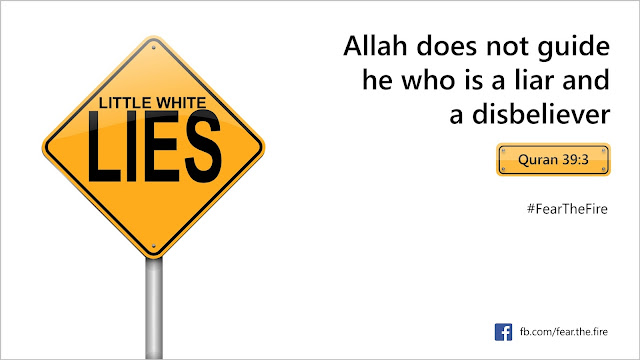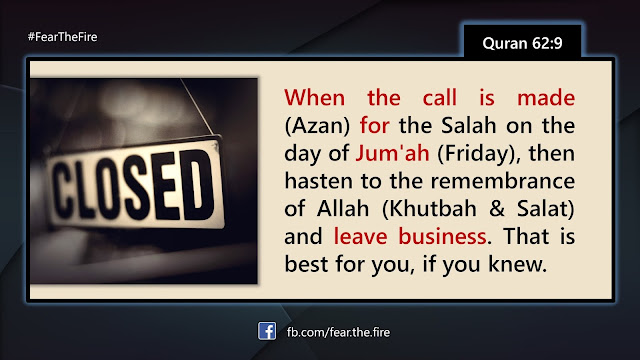𝐓𝐡𝐞 𝐃𝐨 𝐚𝐧𝐝 𝐃𝐨𝐧’𝐭 𝐁𝐮𝐬𝐢𝐧𝐞𝐬𝐬 𝐢𝐧 𝐈𝐬𝐥𝐚𝐦 𝐨𝐫 𝐭𝐡𝐞 𝐚𝐥𝐥𝐨𝐰𝐞𝐝 𝐚𝐧𝐝 𝐩𝐫𝐨𝐡𝐢𝐛𝐢𝐭𝐞𝐝 𝐢𝐧 𝐈𝐬𝐥𝐚𝐦.
Mohamad Mostafa Nassar
Twitter:@NassarMohamadMR
There are two overarching concepts in Islam that distinguishes what is permissible vs what isn’t. These principles are applicable in all aspects of human life. Be it one’s conduct or food or clothing or even doing business. These two key guiding principles ― Halal and Haram ― laid out by Allah and His Prophet (pbuh) helps Muslims to lead their life in a way that is prescribed by The Creator.
Halal (permissible) stuff is something which Allah and Prophet Muhammad (pbuh) have allowed to be done in a lawful acceptable manner. Haram (forbidden) things are exactly opposite to that. Business of alcohol, gambling, pork, music, movies, non-Islamic banking, lotteries, pornography et al are forbidden.
This article attempts to provide a glimpse of that without going into too many details. However the expectation for the not-so-practicing-believers is that they fall in line, if they were to seek pleasure of Allah and be successful in this world and in the Hereafter.
Here are some fundamental rules, or underlying principles, even if one is doing a Halal business.
Rule #1 : Cheating and lying is forbidden
Islam forbids gaining of wealth or any property by committing fraud, cheating or lying to someone. There are sever consequences in indulging in any of these. The Quran is explicit in this and says,
Destruction be to the cheaters, who when they take measure from mankind demand in full, (however) if they measure for people (they sell), they reduce (the weight). Do such people not consider that they will be raised unto an awful day (Qiyamah)? ~ Quran 83:1-5

The Quran warns:
Allah does not guide he who is a liar and a disbeliever. ~ Quran 39:3

The Prophet (pbuh) said,
It is forbidden (haram) to lie except in three situations. Something the man tells his wife to please her and vice-a-versa. To lie during a war. To lie in order to bring peace between people. ~ Muslim 45/130 | Tirmidhi 27/45

The Prophet (pbuh) said,
Whoever has the following four (characteristics) will be a pure hypocrite and whoever has one of the following four characteristics will have one characteristic of hypocrisy unless and until he gives it up. ~ Bukhari 2/27
- Whenever he is entrusted, he betrays.
- Whenever he speaks, he tells a lie.
- Whenever he makes a covenant, he proves treacherous.
- Whenever he quarrels, he behaves in a very imprudent, evil and insulting manner.

Rule #2 : Taking bribe (or giving one) to augment business is forbidden
Taking bribe is one of the major sins in Islam as it is a root cause of corruption, as it influences deals/ business in their favor as compared to the honest competitor. Because of bribery a great deal of money which is due to employers/governments ends up in the pockets of executives.
Bribe can also be in a form of a gift. For example: if one gives a gift to a person of authority with an intention to rule certain things in his favor is not permissible. Thus, in general, bribery is forbidden for both the one who gives it and the one who takes it. The Prophet (pbuh) said,
The curse of Allah is upon the one who offers a bribe and the one who takes it. ~ Ibn Majah 2313

The Quran says:
Do not eat each other’s wealth unjustly and do not bribe the judges… ~ Quran 2:188

Exception: The Sharia does not hold accountable the person who bribes an official in order to reach the truth or avert injustice when there is no other way of doing so. Thus a person who has a right and cannot get his right except by paying a bribe (or a gift), then it is permissible for him to give the bribe/gift.
In that situation the prohibition applies to the one who takes the bribe and not the one who gives it. So in essence it is permissible to give a bribe or a gift to an official who could harm him by withholding ‘his lawful right’ but the official taking the bribe commits the major sin.
Rule #3 : Acquiring property or a product illegally is forbidden
To seize something wrongfully or by force, be it a movable or immovable property, is one of the worst kinds of sin. The Sharia forbids a Muslim to take someone’s property unjustly. See major sin #16 here.

The one who has seized anything unlawfully must repent to Allah and return the seized property to its owner and ask him for forgiveness. The Prophet (pbuh) said:
Whoever has wronged his brother, should ask for his pardon (before his death), as (in the Hereafter) there will be neither a Dinar nor a Dirham. (He should secure pardon in this life) before some of his good deeds are taken and paid to his brother, or, if he has done no good deeds, some of the bad deeds of his brother are taken to be loaded on him (in the Hereafter). ~ Bukhari 81/23
If the seized property is still there, it should be returned as it is, and if it is not there, then the person who has taken the property illegally must replace it.
Rule #4 : Giving or taking of interest (usury) is forbidden
Even if you are in a business of halal products, if you give money to someone and charge interest then this is not acceptable per Sharia. There are stern warnings from Allah and His Prophet (pbuh). The Prophet (pbuh) cursed the one who takes interest, its payer, its scribe and its two witnesses. In another narration he said the practice of usury is worse than having illegal sex.
However the Sharia encourages risk sharing model but not the interest based system. So if you are providing capital to a business ensure that you get into a risk sharing agreement, where you will earn profit if the business becomes successful or incur loss if the business does not do well. Or one is allowed to take a loan from an Islamic bank that provides you the loan for a fixed fee without penalizing you in case you happen to default. Thus taking a loan per se is not forbidden in Islam but taking a loan on interest is haram.
The Quran says,
O you who believe! Eat nor usury doubled and multiplied, but fear Allah that you may be successful. ~ Quran 3:130

The Prophet (pbuh) cursed the one who takes interest, its payer, its scribe and its two witnesses. In another narration he (pbuh) said the practice of usury is worse than having illegal sex. No benefit can be expected from a business that is started with Haram.
Rule #5 : Leniency towards an employee or a debtor in desirable
Allah wants Muslims to be merciful and compassionate towards mankind. There could be circumstances where a person is not able to payback in time, as promised. The religion of peace demands a lender to show due consideration in such situations. In return for this he is rewarded by Allah for exercising patience.
The Prophet (pbuh) said,
May Allah’s mercy be on him who is lenient in his buying, selling, and in demanding back his money. ~ Bukhari 34/29

The Quran advises,
If the debtor is in financial difficulty, then grant him time till it is easy for him to repay. ~ Quran 2:280

The overall guidance by Allah is that we must be merciful to mankind and the animal kingdom. The Prophet (pbuh) said,
Allah will not be merciful to those who are not merciful to mankind. ~ Bukhari 7376

Rule #6 : Exploiting maids, employees or contractors is unlawful
In extension to what’s been said above, exploiting fellow human being (or animals) is strongly disliked in Islam. The Sharia goes to the extent of being fair and just to the employees, contractors vendors and the entire supply chain. There are some employers who even oppress their maids or workers or laborers by making them work overtime and don’t pay them what they deserve or don’t care for their hygiene and sanitation.
This is unlawful. This section highlights such malpractices and hopes the employers reading this will get hidayat (lesson/guidance). In fact The Prophet (pbuh) went couple of steps ahead and said,
Give the worker his wages before his sweat dries. ~ Ibn Majah 16/2537

The Prophet (pbuh) said,
Allah said, ‘Verily I have made oppression unlawful for Me and for My servants too, so do not commit oppression.‘ ~ Muslim 45/73

It is reported in Bukhari (37/10) that The Prophet (pbuh) said,
Allah said, ‘I will be an opponent to three types of people on the Day of Resurrection:
1. One who makes a covenant in My Name, but proves treacherous.
2. One who sells a free person and eats his price.
3. One who employs a laborer and takes full work from him but does not pay him for his labor.’

Rule #7 : Malpractices are frowned upon
The Prophet (pbuh) forbade Muslims from inflating prices by overbidding against one another without a serious intention to buy, but just to hurt others. This practice is haram (prohibited) because it is cheating, tricking, mockery, and extortion. Also this practice tells us of the wicked character of this person, which will lead to animosity and hatred between people. The Prophet (pbuh) said,
He is not one of us who cheats. ~ Ibn Majah 12/2309
The Prophet (pbuh) said,
Do not inflate prices by overbidding against one another. ~ Muslim 45/40

The Prophet (pbuh) said,
If anyone keeps goods till the price rises, he is a sinner. ~ Abu Dawud 3447

Rule #8 : Deceiving a buyer is forbidden
Unfortunately these days it has become a common practice amongst sellers to sell goods by deceiving a buyer. To curb falsehood, cheating and to bring transparency in the society Islam provided guidelines to the sellers so that they do business with honesty. So if a product has a defect the Sharia advises the seller to show it to the buyer before selling it so that the buyer is well informed what he is purchasing and decide if the price is justified.
The Messenger of Allah (pbuh) forbade giving a false impression. ~ Nasai 48/53
The Prophet (pbuh) said,
It is not lawful for a Muslim to sell such a commodity that has a defect, except that the defect is shown to the buyer. ~ Ibn Majah 3/12/2246

The Prophet (pbuh) said:
There are three to whom of Allah will not speak on the Day of Resurrection or look at them or purify them, and theirs will be a painful torment:
- The one who reminds people of what he has given them.
- The one who lets his garment hang beneath his ankles, and
- A vendor who tries to sell his product by means of false oaths. ~ Nasai 2564

Rule #9 : Giving false witness is forbidden
One of the greatest sins is to be a false witness. In business it could be a Sales or a Marketing personnel who is deceiving a customer because his employer has asked him to do so. This is forbidden in Islam and one should never give false evidence, as it is perjury and a major sin.
In situations like court, a Muslim should state the truth unhesitatingly; regardless of the fact whether it is against his close friend or relative. No relationship or prejudice should deviate him from the right path, nor any greed or bribe should be able to make him waver in his stand. One can estimate, because of false witness, how many innocent people were conned into buying a product of a substandard quality or have lost their rights of a property that they deserved. This is completed unacceptable in an Islamic society.
A companion reported that The Prophet (pbuh) said thrice,
Should I inform you out the greatest of the great sins?” They said, “Yes, O Allah’s Messenger!” He said, “To join others in worship with Allah and to be undutiful to one’s parents.” The Prophet (pbuh) then sat up after he had been reclining (on a pillow) and said, “And I warn you against giving a false witness, and he kept on saying that warning till we thought he would not stop. ~ Bukhari 52/18

Rule 10 : Prioritizing business over Salah is unlawful
I) Abandoning business after Jummah Adhan: Some continue to trade or do business even after the call for prayer (Adhan) is proclaimed. For those who still do not know, Quran has an explicit verse that advises a Muslim to leave business once the Adhan is announced. If one continues his business and holds his employees to work, according to the soundest opinion the sale is invalid and there is no barakah in the income that is generated out of this transaction. The Quran says:
When the call is made (Azan) for the Salah on the day of Jummah (Friday), then hasten to the remembrance of Allah (Khutbah & Salat) and leave business. That is best for you, if you knew. ~ Quran 62:9

II) Ignoring mandatory Salah for business: If one believes Rizq (provision) comes from Allah and only Allah can provide sustenance, then continuing business by sacrificing Salah 5 times a day isn’t a wise decision. A Muslim must not give priority to anything when the time for Salah has begun, irrespective if he hears Adhan or not.
If he hears Adhan it become all the more obligatory for him to go to the prayer room or masjid and pray. Doesn’t Muezzin (the one who gives Adhan) say, “Hasten to prayer. Hasten to success” five times a day? So if your customers or vendors or your contractors are keeping you away from the prayer, then know that it is our duty to attend to Allah first when the time of prayer has begun. To this effect, The Prophet (pbuh) said,
There is no obedience to any human being if it involves disobedience of Allah. ~ Ahmad 1098
Lastly, as a good Muslim, we should also remember not to break a promise given to someone. So in business parlance if a seller has agreed to deliver a good at a certain date, he must try his best to deliver it as agreed upon; or at least inform the customer proactively if the shipment is getting delayed.
We should take special care to see that we keep our promises, be true to our words and not change our stand. It is a extremely distasteful that a believer develops the tendency of breaking promises and crossing limits, when it is clear that the Sharia has called out clear painful punishment to those who get into such kind of un-Islamic behavior.
Allah knows Best.
References:
Credit: Fear the Hellfire